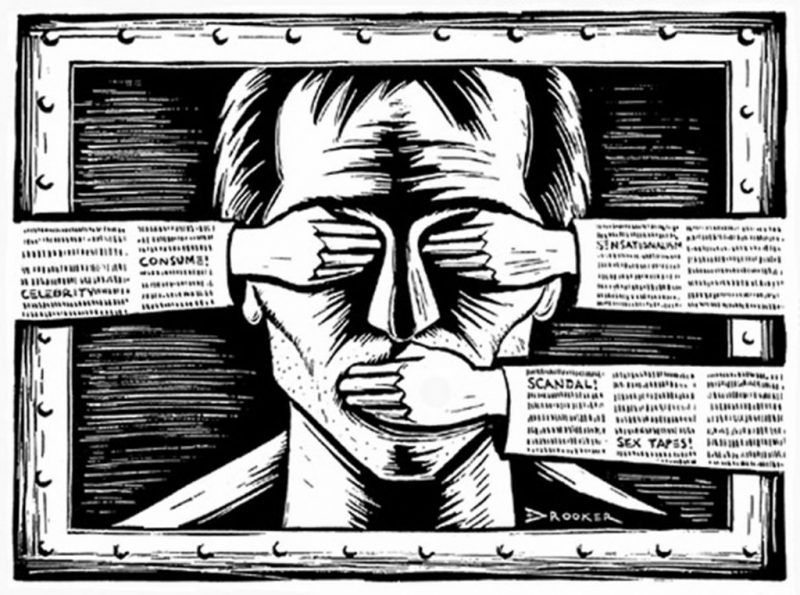

On July 21, 2020, the Journalists’ Union of Athens Daily Newspapers issued a statement expressing its strong opposition to the increasing number of cases in which politicians litigate or threaten to litigate against journalists.
This statement was prompted by the former Minister of Civil Protection taking legal action against journalists of the Kathimerini newspaper after they published an intercepted conversation between Fire Department officials about the devastating fires in Mati, in which 103 people lost their lives.
The Union states that, “when it comes to serving the public interest, journalists should be able to publish their findings without fear of legal threats from politicians.” At around the same time, in another case the Minister of the Interior Takis Theodorikakos requested that the newspaper Efimerida ton Syntakton print a retraction of claims they had made, again threatening them with legal action if they didn’t comply.
The Union goes on to say that through the European Federation of Journalists they are participating in discussions at the EU level to address the SLAPP phenomenon ( Strategic Lawsuits Against Public Participation), because “the abuse of legal procedures to intimidate and silence journalists has become an international threat to the freedom of the press.”
Law 1178/81 regulates the basic legal framework of lawsuits against journalists and the media (Government Gazette AD187/16.7.1981 – On civil liability of the press and other provisions). The Journalists’ Union of Athens Daily Newspapers has called for its repeal, arguing that the law has created the legal basis for a lawsuit industry whose sole purpose is to silence the press and journalists. These lawsuits, they state, are essentially aimed at obstructing investigative journalism and at threatening the financial survival of the media and journalists.
According to paragraph 1, Article 1 of law 1178/81, upon conviction the accused is obliged to pay full monetary compensation for material and non-material damages for a claim that affected the reputation and good name of a person provided that the claim was made with intent, fault or culpable ignorance by the author of the article or, if unknown, the publisher or the director of the media. According to paragraph 5, Article 1 of the same law, the wronged person must also, before filing a lawsuit, contact the author of the material in question, or if unknown, the publisher or editor, calling on them to print a retraction.
As such, the state must take immediate measures to protect against these abusive legal attacks. In fact, the need to adopt such measures is supported by both the European Commission and the European Parliament. The Commission is currently preparing a proposal for a directive to “protect journalists and human rights defenders in strategic lawsuits against public participation (SLAPP).”
In November 2021, the European Parliament also voted in favour of a report calling for new rules within the EU, “to counteract the threat that Strategic Lawsuits Against Public Participation (SLAPPs) pose to journalists, NGOs and civil society in Europe.” SLAPPs, they say, are frivolous legal actions based on exaggerated and often abusive claims, aiming to intimidate and professionally discredit their targets, with the ultimate objective of blackmailing and silencing them. Among the measures proposed by the European Parliament is the establishment of rules on early dismissal by the courts so that abusive lawsuits can be stopped quickly based on objective criteria; the claimant should face sanctions if they fail to justify in what way their action is not abusive.
In a state that adheres to the rule of law, both individual rights and the freedom of the press are protected. Journalists have the right to practice their work freely and independently, without censorship or influence.
Bank Account number: 1100 0232 0016 560
IBAN: GR56 0140 1100 1100 0232 0016 560
BIC: CRBAGRAA
![]()
In a time where the very foundations of democracy are gradually being eroded by the rise of extreme nationalism, alt-right movements, the spread of disinformation and corporate capture, the efforts of organisations such as Vouliwatch are more relevant than ever.
We rely on the generosity of each and every one of you to continue with our efforts for more transparency and accounta
By financially supporting Vouliwatch you support our litigation strategy, our campaigns for transparency and accountability in the political system, the development of new civic tech tools, our research projects and last but not least our impartial and accurate